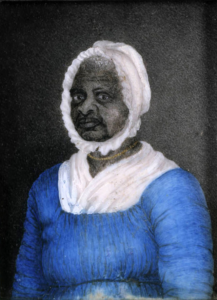Senate Ways and Means FY 2023 Budget Proposal: Preliminary Analysis of Key Issues Affecting Low-Income Massachusetts Residents
On May 10, 2022, the Senate Committee on Ways and Means released its budget proposal for fiscal year 2023 (FY 23), which is referred to as Senate 4. The Massachusetts Law Reform Institute prepared this analysis of selected budget topics impacting low-income residents of the Commonwealth:
- Cash Assistance, SNAP and Related Items Administered by DTA
- Child Welfare: DCF and Related Items
- Criminal Justice Reform
- Health Issues in MassHealth and ConnectorCare
- Homeless Services
- Housing
- Legal Services/Massachusetts Legal Assistance Corporation
Join us at the African Meeting House on April 28
On April 28, the Massachusetts Law Reform Institute (MLRI) will be hosting our 2022 Catalyst for Change event at the African Meeting House on Boston’s Beacon Hill. Built in 1806 and located in Smith Court, the Meeting House is considered the oldest extant Black church building in America. Smith Court served as a center for Boston’s Black community in the 19th and early 20th centuries. Along with the Meeting House, it is also home to the Abiel Smith School, which today houses the Museum of African American History.
MLRI Will Honor Mintz’s Brent Henry with Catalyst for Change Award
Organization to recognize Henry in April 2022 for his work on behalf of vulnerable communities

Boston, Mass. (November 4, 2021) – The Massachusetts Law Reform Institute (MLRI) will honor Brent Henry, a leading health care attorney at Mintz, as the latest recipient of the organization’s prestigious Catalyst for Change Award. MLRI is a nonprofit poverty law and policy center that advocates to advance policies and practices that secure economic, racial, and social justice for low-income communities. Henry will be honored for his work promoting diversity and inclusion in the legal profession, advocating for more funding for legal aid programs, and supporting health and housing equity at an event on April 28, 2022.
“Now more than ever, MLRI’s mission to fight for policies that benefit low-income people in Massachusetts and that advance racial equity justice is important to the future of our Commonwealth and our nation,” said MLRI’s Executive Director, Georgia Katsoulomitis. “Brent Henry knows what it is like to stand in the trenches to help those in need of support and to address both economic and racial injustice. His career is defined by promoting equity and inclusion, from the legal profession to health care to housing. We are honored to celebrate his work.”
MLRI Signs Race Equity Statement on House ARPA Plan
The Massachusetts Law Reform Institute has joined a number of organizations in signing a statement regarding the plan by the Massachusetts House of Representative to distribute American Rescue Plan Act (ARPA) funds in relation to promoting racial equity in the Commonwealth. Below, please find the text of the statement, which can also be found here.
Statement on House ARPA Plan
Federal pandemic relief funds are an unprecedented opportunity for Massachusetts. This is the time to address structural barriers and oppression laid bare by the pandemic. This is the time to right some wrongs by investing in our Black, Latino, Asian, and Native American communities who have been hit hardest by the pandemic and who have not historically received equitable funding. Our leaders must rise to this challenge; while the House debate led to some notable wins in these areas, there’s still a lot of work needed to meet the moment.
The End of Slavery in Massachusetts: How the Power of Law Fulfilled the Promise of Justice

In the same year that the American Revolution officially ended and the Treaty of Paris was signed — 1783 — the Commonwealth of Massachusetts effectively abolished the institution of slavery. Some 80 years before the signing of the Emancipation Declaration and 82 years before the last enslaved individuals in Galveston, Texas were freed in 1865, Massachusetts determined that enslaving Black men and women was incompatible with its new state constitution and ended the barbaric practice. And all of it was achieved through the legal system, not through armed conflict.
This, of course, does not excuse the participation of the Commonwealth in an institution that has wrought so much damage on generations of Black Americans. Massachusetts, like our nation as a whole, must grapple with the destructive legacy and lasting trauma of slavery and with the massacres and forced relocations of Native and indigenous people within our borders.
But as we celebrate Juneteenth on June 19, which marked the unequivocal termination of the abhorrent practice in the United States, it is also worth knowing the history of slavery’s end in Massachusetts — and how the legal system and two courageous individuals played a pivotal role in it.
First Circuit Stands up for Racial Equity and Diversity in Public Education

In the same week that US News & World Report solidified Boston Latin School’s educational prowess by ranking it Massachusetts’ number one public school and in the top fifty in the nation, the First Circuit opened access to the highly coveted exam school to students across the city, across racial lines, and across socioeconomic status. Last Wednesday, the appeals court denied the emergency injunction requests by the plaintiffs in the Boston Parent Coalition for Academic Excellence Corp. vs. Boston Public Schools Committee case thereby allowing Boston Public Schools to send out invitations to the exam schools using their temporary Covid-19 admissions plan.
The court gave a green light to admissions policies that address inequities and promote diversity.
MLRI Statement Regarding Verdict in the Trial of Derek Chauvin
The outcome of the Derek Chauvin trial – guilty on all counts – brings some measure of justice to the family of George Floyd, and relief to the community in Minneapolis, to Black and brown communities across the nation, and to all people of conscience.
The Massachusetts Law Reform Institute applauds the state prosecutors for making a strong case and the jury for their verdict. But the truth is that George Floyd should be alive today. His life mattered, he mattered. His agonizing death was the outcome of systemic racism in our nation that has devalued the humanity of Black people for 400 years. The Massachusetts Law Reform Institute pledges to continue our work to combat racism and injustice and to ensure that our Commonwealth and our nation treats Black and brown people with dignity, and that as a society we promote equity along with justice.
In solidarity,
Georgia Katsoulomitis, Executive Director
Virginia Benzan, Director, MLRI Racial Equity & Justice Project
